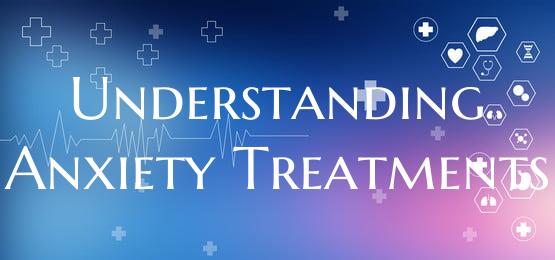
Understanding Anxiety Treatments
Anxiety is a common and often debilitating mental health condition that can significantly impact an individual's quality of life. Fortunately, there are several effective treatment options available to help manage and alleviate symptoms of anxiety. Understanding these treatments is crucial for individuals seeking relief and support for their anxiety.
1. Therapy: Therapy, particularly cognitive-behavioral therapy (CBT), is a cornerstone in anxiety treatment. CBT helps individuals identify and change negative thought patterns and behaviors that contribute to their anxiety. Through therapy sessions, individuals learn coping strategies, relaxation techniques, and problem-solving skills to better manage anxious thoughts and feelings.
2. Medication: In some cases, medication may be prescribed to help manage anxiety symptoms. Common medications for anxiety include selective serotonin reuptake inhibitors (SSRIs), serotonin-norepinephrine reuptake inhibitors (SNRIs), and benzodiazepines. It's essential to work closely with a medical professional to find the right medication and dosage that works best for each individual.
3. Lifestyle Changes: Making lifestyle changes can also play a significant role in managing anxiety. Regular exercise, a healthy diet, sufficient sleep, and stress management techniques such as mindfulness meditation or yoga can all contribute to reducing anxiety symptoms.
4. Mindfulness and Relaxation Techniques: Practices like mindfulness meditation, deep breathing exercises, and progressive muscle relaxation can help individuals calm their minds and bodies, reducing anxiety levels. These techniques can be easily incorporated into a daily routine to promote relaxation and emotional well-being.
5. Support Groups: Joining a support group for individuals with anxiety can provide a sense of community and understanding. Sharing experiences with others who are facing similar challenges can reduce feelings of isolation and provide valuable support and encouragement.
6. Complementary Therapies: Some individuals find relief from anxiety symptoms through complementary therapies such as acupuncture, massage therapy, or aromatherapy. While these approaches may not be a standalone treatment for anxiety, they can be beneficial as part of a holistic approach to wellness.
7. Self-Care Practices: Engaging in self-care practices is crucial for managing anxiety. Taking time for activities that bring joy, relaxation, and fulfillment, such as hobbies, spending time in nature, or practicing creative arts, can help individuals maintain a sense of balance and well-being.
Understanding anxiety treatments and exploring different options can empower individuals to take control of their mental health and work towards a life with reduced anxiety and improved overall well-being. It's essential to work closely with mental health professionals to develop a personalized treatment plan that addresses individual needs and preferences.